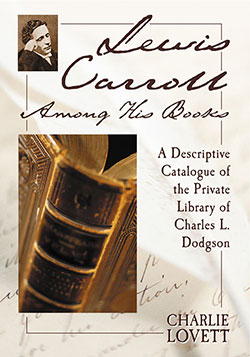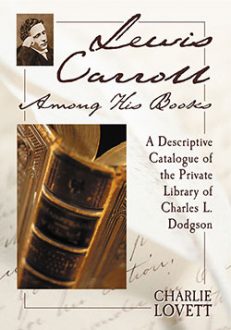Lewis Carroll Among His Books
A Descriptive Catalogue of the Private Library of Charles L. Dodgson
$39.95
In stock
About the Book
Charles Lutwidge Dodgson—known better by his pseudonym, Lewis Carroll—was a 19th century English logician, mathematician, photographer, and novelist. He is especially remembered for his children’s tale Alice’s Adventures in Wonderland and its sequel, Through the Looking Glass. By the time of Dodgson’s death in 1898, Alice (the integration of the two volumes) had become the most popular children’s book in England. By the time of his centenary in 1932, it was perhaps the most famous in the world.
This book presents a complete catalogue of Dodgson’s personal library, with attention to every book the author is known to have owned or read. Alphabetized entries fully describe each book, its edition, its contents, its importance, and any particular relevance it might have had to Dodgson. The library not only provides a plethora of fodder for further study on Dodgson, but also reflects the Victorian world of the second half of the 19th century, a time of unprecedented investigation, experimentation, invention, and imagination. Dodgson’s volumes represent a vast array of academic interests from Victorian England and beyond, including homeopathic medicine, spiritualism, astrology, evolution, women’s rights, children’s literature, linguistics, theology, eugenics, and many others. The catalogue is designed for scholars seeking insight into the mind of Charles Dodgson through his books.
About the Author(s)
Bibliographic Details
Charlie Lovett
Format: softcover (7 x 10)
Pages: 383
Bibliographic Info: photos, bibliography, indexes
Copyright Date: 2005
pISBN: 978-0-7864-2105-3
eISBN: 978-1-4766-0941-6
Imprint: McFarland
Table of Contents
Acknowledgments vi
Preface 1
Abbreviations for Works Cited 15
THE CATALOGUE 19
Name Index 357
Subject Index 371
Book Reviews & Awards
“interesting background information is given on each item, including history and relevance to Dodgson’s life and personality…serves not only as an important reflection of Dodgson’s character and interests, but also as a significant reflection of late nineteenth-century society”—ARBA.






